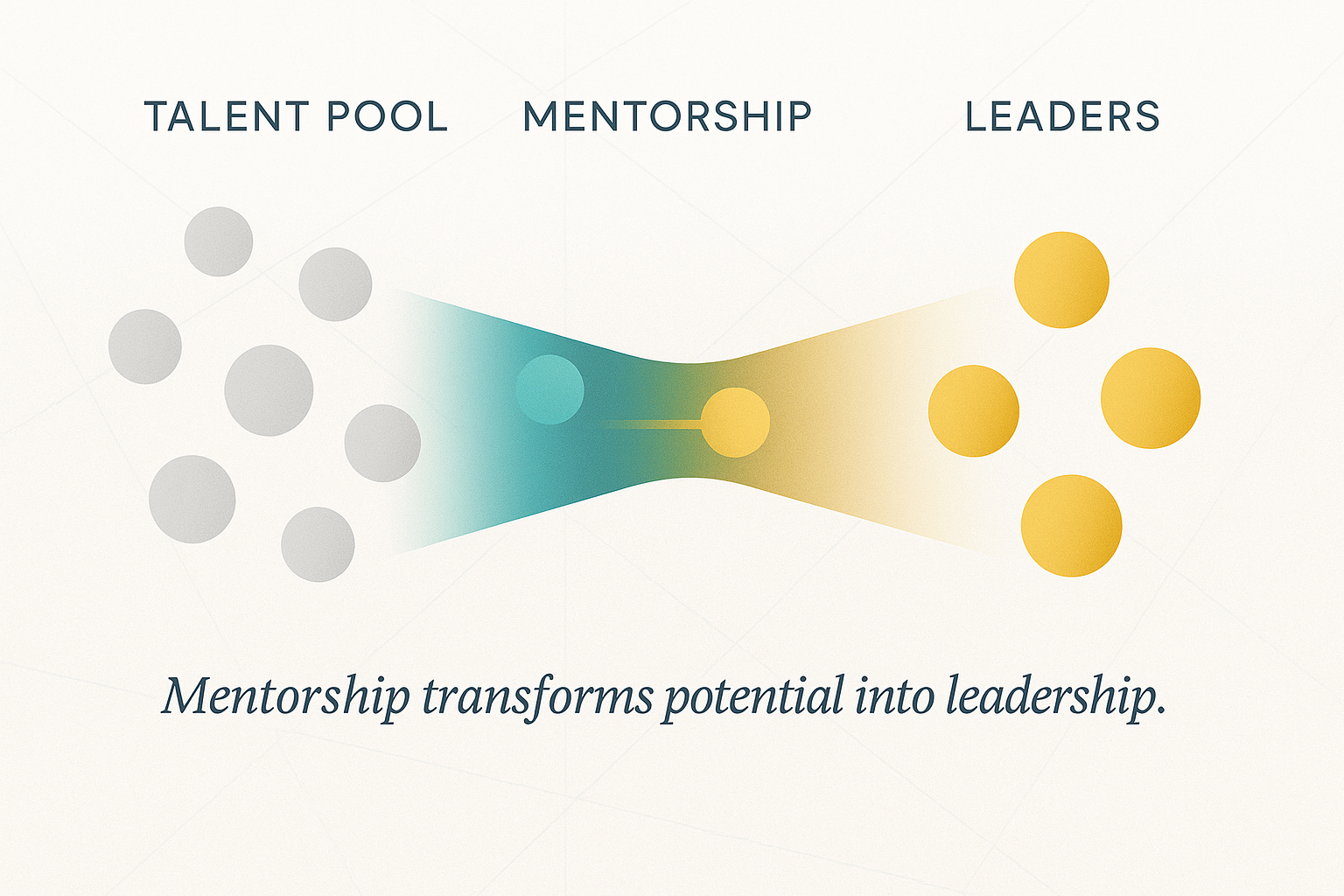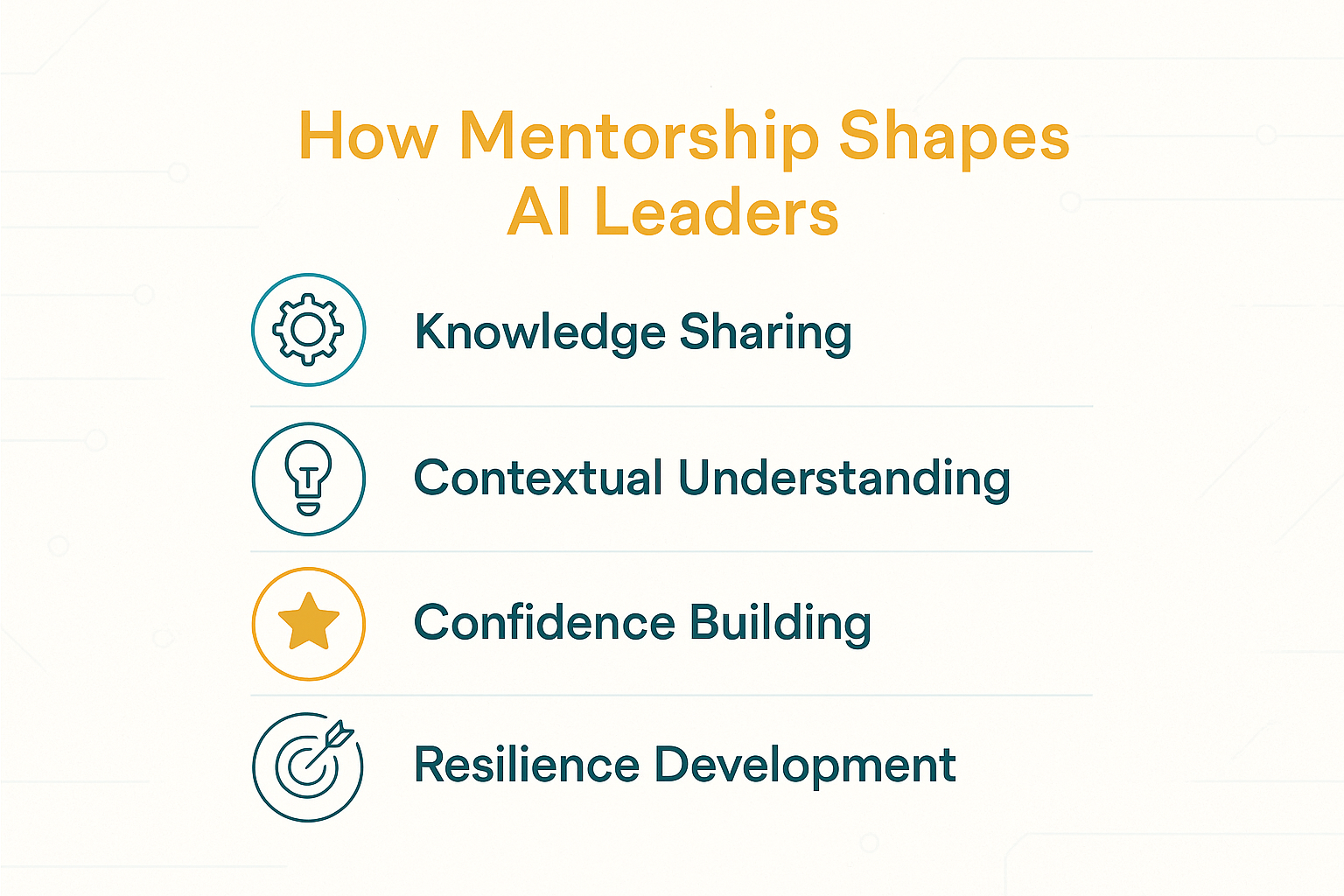Eighty-five percent of AI projects never make it into production. But an even bigger challenge is emerging: a shortage of leaders ready to guide the next generation of AI teams.
The AI conversation often centres on algorithms, billion-dollar infrastructure, and the race for talent. But the true differentiator for the next generation of AI leaders may not be raw technical brilliance or capital investment. It may be something far simpler and far more powerful: mentorship.
The coming talent gap in AI leadership
AI is advancing faster than the leadership pipeline can keep up. Universities are producing skilled graduates, but leadership requires more than coding skills or academic knowledge. It requires judgment, strategic vision, and the ability to translate technology into business and societal impact.

Reports already suggest a global shortage of professionals who can bridge deep technical expertise with leadership capability. Without mentorship, many promising young professionals plateau: technically capable, but unprepared to guide teams, organisations, and ecosystems.
Why mentorship outpaces classrooms and training programmes
Formal education builds competence. Training sharpens skills. Mentorship builds something harder to teach: context.

When experienced leaders share not just knowledge but also stories of failure, trade-offs, and lived experience, they compress years of trial and error into moments of clarity. For AI, where the stakes are high and ethical dilemmas complex, this kind of contextual learning is invaluable. It gives rising professionals not just the “how” of AI, but the “why” and the “when.”
Lessons from tech ecosystems
Across ecosystems, mentorship has proven catalytic. Hackathons that pair students with seasoned engineers consistently outperform those that do not. Startup accelerators repeatedly cite mentorship as the single biggest driver of founder success, often even more than funding.
At Google, one of the biggest accelerators for leadership growth has not been formal training, but peer mentorship. Senior engineers often mentor rising talent through “20% projects,” helping them learn how to balance technical excellence with business priorities. These informal mentor–mentee relationships have produced many of Google’s most influential product leaders, demonstrating how mentorship can unlock both confidence and strategic capability.
In AI, where the field is still evolving, mentorship ensures lessons learned in labs, enterprises, and regulatory discussions are shared rather than siloed. This strengthens the collective capacity of the ecosystem.
Building confidence, not just competence
Technical ability can be measured through exams, projects, or code reviews. Confidence, however, is built in dialogue.
Mentorship provides young AI professionals with the reassurance that their challenges are not unique. It validates their struggles, sharpens decision-making, and accelerates readiness for leadership roles.
According to the Harvard Business Review, employees with mentors are promoted five times more often than those without, and they report significantly higher career satisfaction. For under-represented groups in tech, mentorship can be especially transformative. It signals that they belong in the conversation and that their contributions are valued. This is how ecosystems become not only bigger, but also more inclusive and resilient.
How mentorship strengthens the wider AI ecosystem
Mentorship is not only about the mentee. It benefits organisations and ecosystems by enabling:
In AI, where regulation, adoption, and innovation are still finding balance, such trust is priceless.
Closing challenge: Who are you mentoring today?
The future of AI leadership will not be defined only by algorithms or market share. It will be shaped by people who are guided, challenged, and supported by those who came before them.
For today’s leaders, the real question is not “What AI systems are we building?” but “Who are we building up as the next generation of AI leaders?”
Mentorship is not a side activity. It is the secret weapon. Those who invest in it will not only shape careers but also define the trajectory of the entire AI ecosystem.